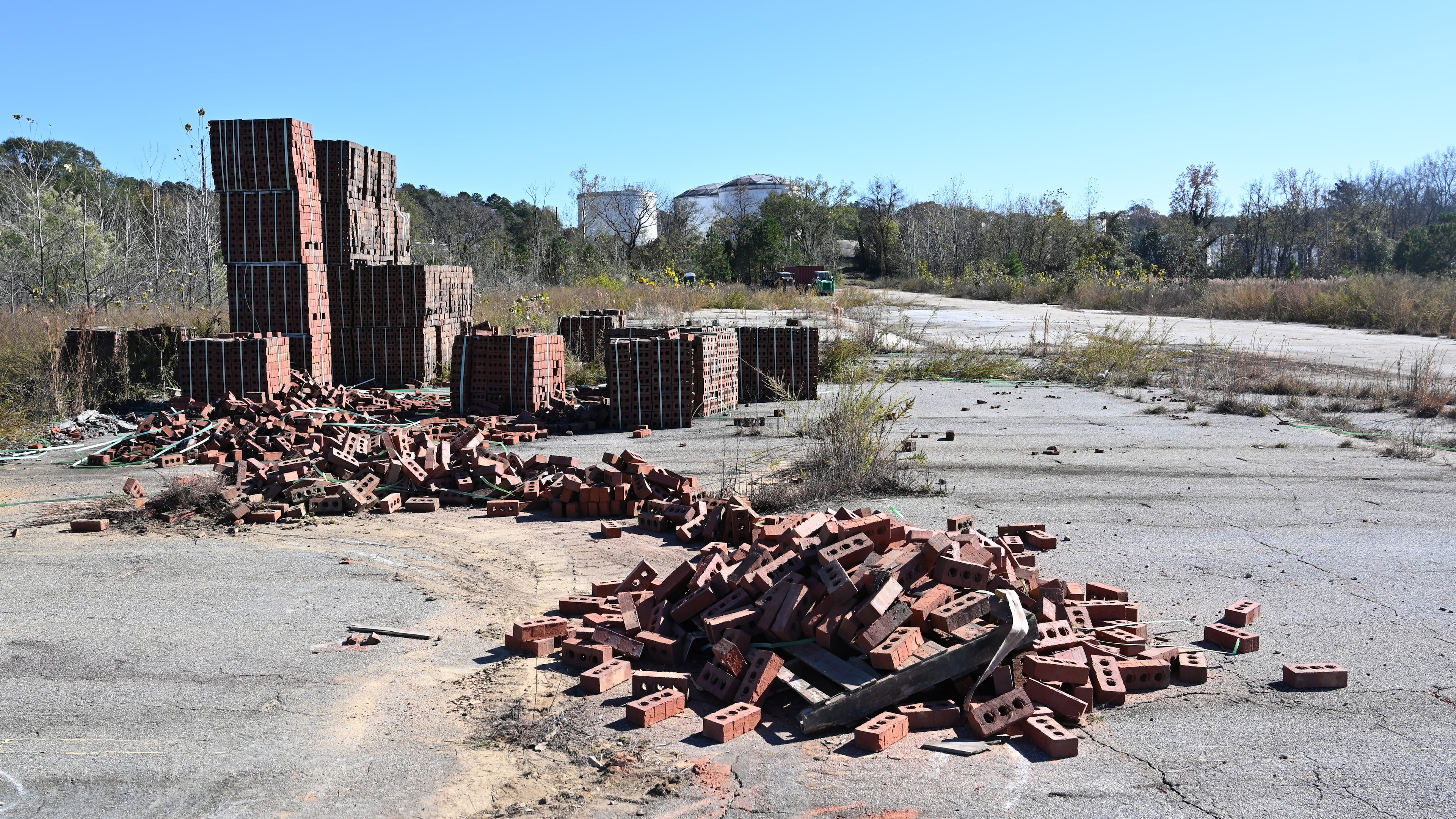Norfolk Southern halts work on Chattahoochee Brick site after city raises objections

Rail company Norfolk Southern is pausing construction work on a site in northwest Atlanta after the city took legal action to stop the development of the land, which has a dark history through its association with Georgia’s convict leasing program.
The large site, located near the Chattahoochee River just north of Bolton Road, was once home to the Chattahoochee Brick Company, which used inmates from Georgia’s prisons to perform backbreaking labor. The inmates, who were leased through a state-run system operated from the 1860s until the early 1900s, suffered and some even died on the job from abuse and a lack of care.
Norfolk Southern said in the fall that it hopes to build a rail transfer terminal on the land to move materials like ethanol, oil and other commodities. The plans were met with angst and frustration from local residents who have pushed for years to prevent development on the the land.
Atlanta Mayor Keisha Lance Bottoms on Friday announced the city filed a legal petition with the federal Surface Transportation Board to stop Norfolk’s construction on the site.
“Our administration will do everything it can to protect the sanctity and significance of this property,” Bottoms said in a statement. “A site of such historic and environmental importance needs careful consideration before even limited development occurs.”

The following day, Norfolk Southern said in a statement that it will “stop work on the site immediately while we engage in further discussions with the city.” The rail company, which is also building its corporate headquarters in Atlanta, said it agrees with the mayor about the historical significance of the site.
“We have committed to build a memorial to ensure the atrocities committed at the site are never forgotten,” the statement said. “We are abiding by all applicable regulations, and are conducting extensive clean-up of the site.”
Historians have documented the abuse at Chattahoochee Brick was so extreme that some laborers — the overwhelming majority of whom were Black — died on the factory grounds. The city said it is widely believed that some makeshift graves still remain on the site.
Norfolk said its archeological and historical surveys have not found evidence of any human remains, but “given the tragic legacy of the site we have continued to exercise great care.”
The Surface Transportation Board is an independent federal agency that mostly regulates railroads. It’s unclear when the board could make a ruling on the city’s petition, which challenges the development on a number of regulatory grounds.
Because Norfolk Southern is a railroad, under the Interstate Commerce Commission Termination Act, it did not need to receive a land-use permit from the city to build. It said in the fall that it had already received ground disturbance and air permits from the state’s Environmental Protection Division, and was in the process of getting some federal permits.
Norfolk is leasing the land from South Carolina-based biofuel shipping company Lincoln Energy Solutions, which previously sought to build a fuel terminal on the site. Lincoln withdrew its permit application in 2016, after running into the objections of nearby homeowners.
When Norfolk’s plan surfaced, Councilman Dustin Hillis, who represents the area, sent a letter to Norfolk Southern and Lincoln in October urging the companies to back out of the proposal, which he called a “completely undesirable development on a unique and sacred site.”
Hillis said Monday he is thankful the city’s law department took action on the issue.
“I’m hopeful that the city will be successful in their injunction,” he said.
Donna Stephens, one of the community leaders opposed to the development and a resident of the nearby English Park neighborhood, said she was pleasantly surprised to see Bottoms take action against Norfolk Southern.
“I am extremely happy. ... It means so much to me and an army of other people, this milestone,” she said. “We know we still have work to do, but this just means that the work that we’ve already done wasn’t in vain.”


